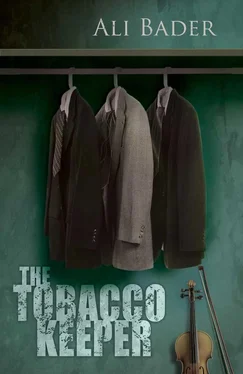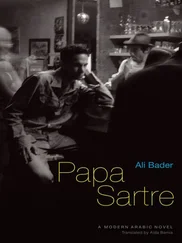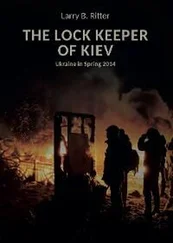At that time, Nancy was working as a correspondent for a major American network. She had studied journalism in New York and worked as an extra at a radio station in Boston, so she had strong connections with the media there. She managed to get me a fair few assignments and commissioned me more than once herself. Although these jobs, for a variety of reasons, were not long term, they did help me a great deal with my living expenses and kept me in close contact with press circles. My relationship with Nancy reached its high point at this time. She was an irresistible paragon of femininity and desire. She had the figure of a model: tall, dark, slim and delicate. I was attracted to her soft features and shapely figure beneath her elegant outfits. Nancy had been married at twenty-three but had got a divorce from her husband, who was a well-known broadcaster at BDR New York.
Nonetheless, this love story didn’t last long. We had many problems and rows and finally we decided to split up. I moved to Damascus to work with an Italian director on a documentary about Iraqis exiled in Syria. She went to New York. When I returned to Beirut two months later, she was back, having returned the previous month. Although she was in a relationship with José Paz, the famous Brazilian journalist who’d been working in Beirut for a long time, a vague connection remained between us via our work. Throughout this period, we continued to be close friends and met from time to time in Beirut and elsewhere. She tried hard to find me some work to help me earn a living. But I was still in a dismal state, having been unemployed for more than three months, with no real work either in journalism or television.
My situation began to worsen rapidly, for my savings from the Damascus documentary were gradually running out. Although at the time I believed that my move to Beirut would launch my career as an Arabic writer, my hopes were soon dashed. All my contacts had been with European and American journalists, which had made it easier to write for the press outside the Arab world, but I was an unknown in terms of the Arabic press. I had never had any contact with Arab journalists, writers or publishers, and they were the only conduit to a job. It was strange that work for me was always connected with a love affair or relationship of some kind. At that point in time, my affair with Nancy was virtually over, and since my journalistic work depended entirely on such relationships, I found myself isolated and lonely.
I knew that if I failed to form a relationship, I would probably remain unemployed. However, while seeking a relationship with a woman within Arabic media circles, I started to write the outline of a novel set in Baghdad. Being unable to finish it increased my sense of failure. I then met Nancy and her boyfriend at the Lady Killers’ bar. We stood and talked for a long time. She was so genuinely distressed at my state that she invited me to Damascus to meet Jacqueline Mugharib, a Levantine woman well-connected with the Arab and foreign press and media. I went back to Syria, and at Jacqueline Mugharib’s I was introduced to an Iraqi director working for a TV channel. I started helping him with his work, which was by no means extensive, as he only produced brief news reports that he sold to various channels. On top of that, my collaboration with him was short-lived and fairly erratic, because it depended on a fast news turnover and last-minute assignments by the channels. I felt very unsettled. In order to finish my Arabic writing project, I decided to move to Amman, where I arrived feeling completely dejected. I rented a small, very cheap apartment, or studio, to be precise. I was completely cut off from everyone, moving only between the library and the studio. I started visiting the offices of the daily papers, where I got to know Salih, who was the culture editor for one of them. He asked me to write some literary articles, especially on foreign literature. I also translated chapters from modern novels and wrote some critical articles that he occasionally commissioned for the same paper. These were all pretty routine jobs that I took no great pleasure in.
Boring Amman afforded me plenty of time to read, watch movies and attend concerts, which helped me while away the time but filled me with little enthusiasm. So I didn’t stay long, and soon moved to Damascus. Actually, I moved to Damascus at the invitation of a friend of mine who was working for a film company there. He commissioned me to script a film on behalf of an Iraqi cultural institution set up by Iraqi communists after the massacre they’d suffered in 1980. I stayed in Damascus for several months writing the script. After finishing the task and securing some funds, I decided to stay on. I rented a room in a very strange hotel in the Sarouja quarter of Damascus. It was a small and cheap hostel, with mostly foreign guests and an excellent library that contained books in every language. From my little room in this weird hotel, I started dispatching reports on cinema and theatre to a French newspaper that was interested in such events from around the world. All these jobs, however, were of short-lived interest and quickly faded away.
During those difficult days, Nancy called to tell me that she had found me a job as a copywriter for trailers and commercials at one of the Arab TV studios, without needing to leave Damascus. From the comfort of my hotel room I wrote amusing adverts, coming up with exciting and attention-grabbing catch-phrases for washing-up liquid, car tyres, rubber products and other stuff. This simple work in fact helped me move from the cheap hotel to a small apartment or studio in Bab Touma, near Jacqueline and Hanna Mugharib’s house.
I remained like this until 2003. The occupation of Baghdad by the Marines and the toppling of Saddam’s regime represented a real sea change in my life as a reporter. From that moment on, that Middle Eastern city became the focus for reporters, correspondents and documentary-makers from around the world; not just because of the war, but also because of a real transformation in international politics that, on the one hand, reasserted imperialist discourse and, on the other, represented an opportunity for change throughout the Middle East. There were global, and media, expectations that Baghdad would be a turning point for the whole world. It was expected to become a modern city: politically, economically and socially. However, instead of becoming, as anticipated, a city safe for politicians and reporters, it turned into the most violent and dangerous place in the world. This created two contradictory perceptions of a city that was hovering on the brink of civil war. On the one hand, its media value rose to unprecedented heights, while on the other, it became dangerous and completely off limits to journalists. What were reporters supposed to do? They had to leave Baghdad for neighbouring capitals: Amman, Damascus and Beirut in particular were relatively close. Because these cities were safe, journalists could establish contacts there, acquire information and get reports and news about Baghdad. This was how my career as a ghost writer began, or ‘black writer’ as Nancy Awdeh used to say whenever she saw me. I’d see her sitting, with her sturdy build and full breasts, like a long-legged blaze of lust, and as soon as she saw me, she’d call out, ‘Hi, black writer!’
It was thanks to Nancy that I got so many ghost-writing assignments as well as countless privileges. Through her, I became known to many newspapers and TV channels, and she introduced me to a large number of foreign and Arab news agencies, for whom I wrote reports and made documentaries about Iraq. I’ll always be thankful to her for introducing me to so many famous international reporters and journalists. I’ll never forget that it was she who introduced me to Robert Fisk, Pierre-Jean Luizard, Tariq Ali and others.
Читать дальше












